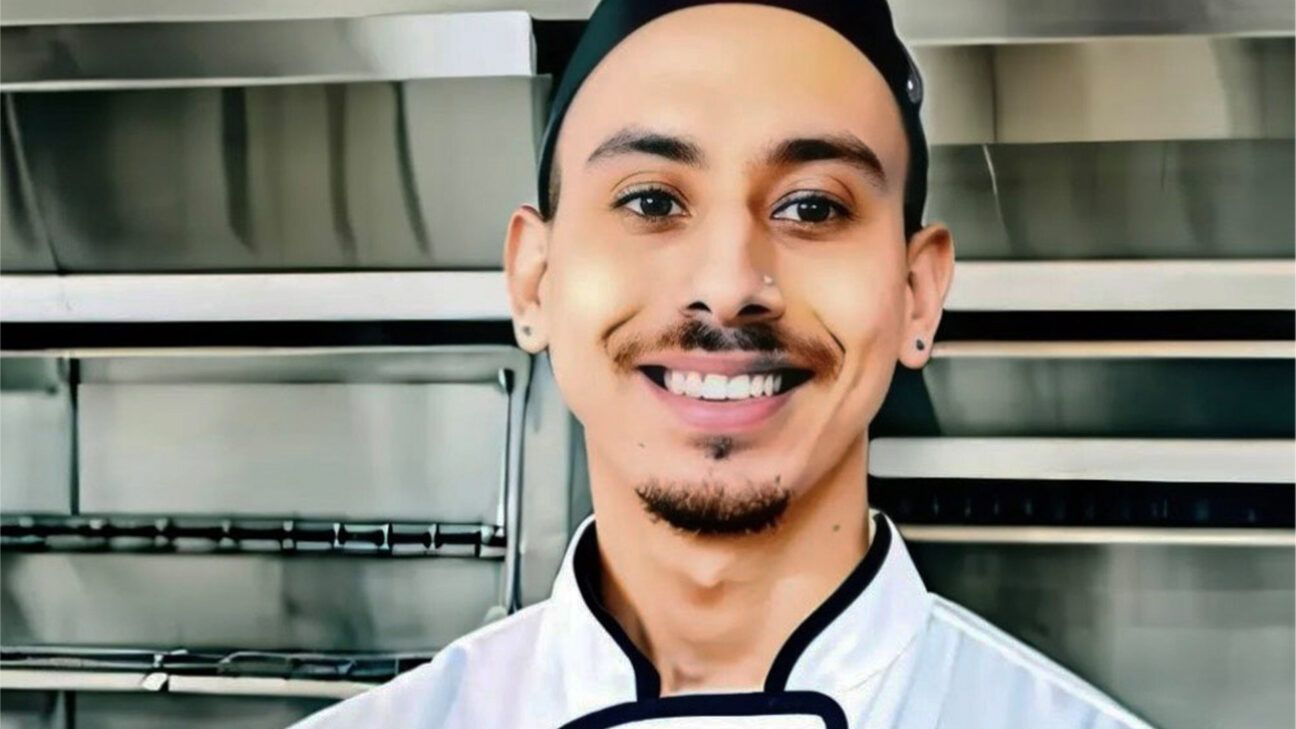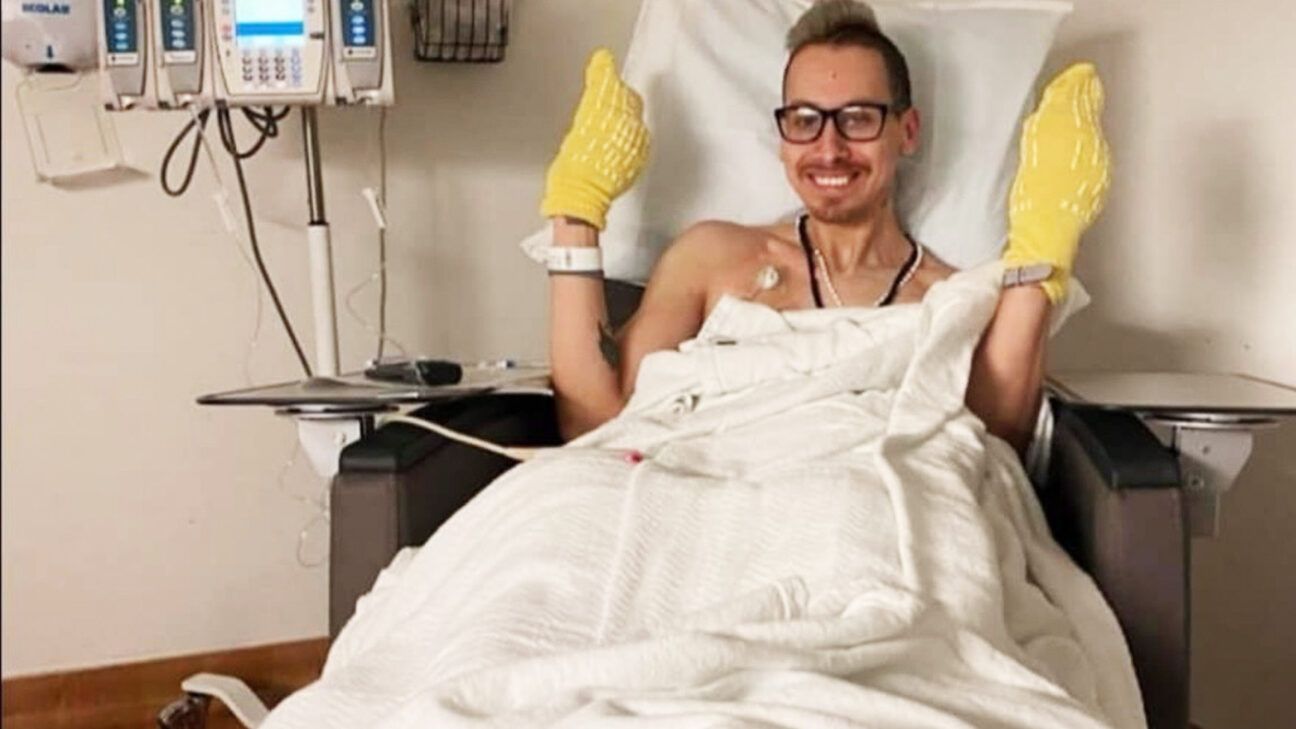
- Colorectal cancer is now the leading cause of cancer death in men under 50 years old and the second leading cause of cancer death in women under 50.
- Chris Lopez shares his journey of learning he had stage 3 colon cancer at age 30.
- Screenings can help prevent and detect colon cancer.
During the summer of 2019, then-29-year-old Chris Lopez decided to take a vacation from college and his job as a chef in Texas to visit California, a destination on his bucket list.
“I had a blast there, but when I got back in town, I was having really strong abdominal pain,” Lopez told Healthline.
At first, his primary care doctor prescribed antibiotics with the assumption that he had food poisoning. However, over the next month, the symptoms worsened, and within two months, Lopez saw blood in his stool.
“My doctor ran a bunch of tests for IBS, colitis — all the stomach issues he could think of…Then he thought maybe I got a parasite in California and prescribed an anti-parasitic,” said Lopez. “The last thing on his mind was cancer because I was so young.”
When nothing seemed to help relieve symptoms or provide answers, his doctor referred him to a GI doctor for a colonoscopy.
Fighting and advocating for his life at 30 years old
Lopez underwent a colonoscopy in December 2020.
“I was scared out of my mind,” he said. “I already had suspicions it might be cancer because as we got closer to the colonoscopy, my stools were really bloody, and I couldn’t keep an appetite. When I first got the symptoms, I was 185 pounds, and around the time I got the colonoscopy, I was skeleton and close to 130.”
After the procedure, he learned that he had stage 3 colon cancer. His doctor discovered a tumor that was around 10 centimeters and was obstructing his colon, preventing bowel movements.
“All these questions and emotions came at that time, and I was confused and wondering why this happened to me,” said Lopez. “But I knew the disease wasn’t going to end me.”
Lopez met with a surgeon recommended by his GI doctor, but he wasn’t comfortable with him because the surgeon recommended surgery right away and told Lopez that he would require a permanent ostomy.
“I’m young and wanted more options. I knew off the bat I was getting a bad vibe from this doctor,” Lopez said. “If you have a feeling or are not comfortable with the diagnosis and treatment plan, get a second opinion. It’ll be worth it.”
After researching doctors on his own, he found a team of providers he trusted at UT Southwestern Medical Center in Dallas.
“They gave a lot of information to take in at the time, but they showed me all the data and different treatments,” he said.
In January 2020, he began treatment. First, he had IV chemotherapy for a month, which shrunk the tumor to 4 centimeters.
“My intestine felt less restricted and it was feeling more back to normal,” said Lopez.
In June 2020, he underwent targeted radiation therapy for a month, which further reduced the tumor to about 1.5 centimeters. Then in November 2021, he had surgery to remove the tumor, which was successful.
“I wanted to celebrate, but I was in so much pain from surgery. I thought I’m not going to let this keep me down,” said Lopez. “With the help of crutches and with the grace of God I was able to get up and start moving. I couldn’t sleep that night because I was so grateful, and I was praying all night.”
After surgery, he had an ostomy for about a month. Full recovery took about six months because, in the spring of 2022, he had another surgery to repair parts of his intestine that were removed during surgery. In total, he had to be off work for a year and a half.
“It was a very hard, long, stressful journey,” said Lopez. “I’m so grateful today. I wouldn’t be here without my faith, family, and my wife and daughter and the support system I had.”

Colon cancer is increasing in people under 50
According to a study released by the American Cancer Society (ACS), colorectal cancer is now the leading cause of cancer death in men under 50 years old and the second leading cause of cancer death in women under 50.
“Sadly, we hear too often about young people who have worrisome symptoms for colorectal cancer but either do not seek care or are not taken seriously by their physician,” Dr. William Dahut, chief scientific officer of the ACS, told Healthline. “People can develop colorectal cancer at almost any age, and adults should be vigilant about symptoms and consider more than one opinion if symptoms persist.”
However, he stressed that some people don’t have symptoms when they have a cancerous lesion.
“In fact, the purpose of screening in asymptomatic patients is to find tumors when they’re smaller and easier to treat,” said Dahut.
Because the incidence of early-onset colorectal cancer before age 50 has been rising by 2% per year since 1990, Dr. Ning Jin, medical oncologist at The Ohio State University James Cancer Hospital and Solove Research Institute, said the ACS guidelines for having a screening colonoscopy at 45 years old are crucial.
“The misunderstanding is that colorectal cancer can’t be prevented,” she told Healthline. “Screening colonoscopy is able to detect polyps, which can be removed. Therefore, colonoscopy is the most effective way to detect and remove pre-malignant polyps, which may transform into colorectal cancer.”
She added that colonoscopy is not a painful procedure and that the bowel preparation method has improved.
Additionally, at-home tests are available and helpful in determining who needs additional screening tests.
“These tests are for folks that are average risk and have not had prior polyps,” said Dahut.
While all the causes of colorectal cancer are not known, he noted that about a third of colorectal cancer cases occur in people with a strong family history or a known genetic mutation that puts them at higher risk for colorectal cancer.
“It’s important to learn about your family history and potentially undergo genetic screening. If you are at higher-than-normal risk, then colorectal screening should begin earlier than age 45 with the exact date determined by discussion with your physician,” said Dahut.
During Lopez’s treatment, he had genetic testing, which did not show any increased risk for colorectal or other cancers.
While there is no sure way to prevent colon cancer, Jin said healthy lifestyle choices such as avoiding smoking and alcohol, exercising, and eating a diet full of vegetables and less red meat can help.
Pushing for prevention and awareness
Because many people don’t realize that colorectal cancer can occur in people in their 20s and 30s, Dahut said being vigilant about symptoms even before the recommended screening age of 45 is important.
Lopez knows this first-hand. In fact, he hopes the screening age will be lowered soon.
“I don’t want younger people to keep dying from this disease,” he said.
He also said he wants to spread awareness to Hispanic and Spanish-speaking communities.
“I want them to know how bad this disease is,” said Lopez. “I talk with various colon cancer patients from Mexico, Columbia, Puerto Rico. My message is to get screened; it doesn’t matter your ethnicity or your age.”
In addition to sharing his story publicly, he is an advocate for Dallas YACS (Young Adult Cancer Support), which offers virtual and in-person support groups for those going through cancer and survivors.
“We might meet with people at their radiation or infusion centers and during hospital stays. Sometimes we do runs and events to raise awareness,” said Lopez. “The biggest thing is that when new people come in, we talk to them and let them know we’re here for them.”
He Was Diagnosed with Stage 3 Colon Cancer at 30. This Saved His Life
Source: Pinoy Lang Sakalam



0 (mga) komento:
Mag-post ng isang Komento